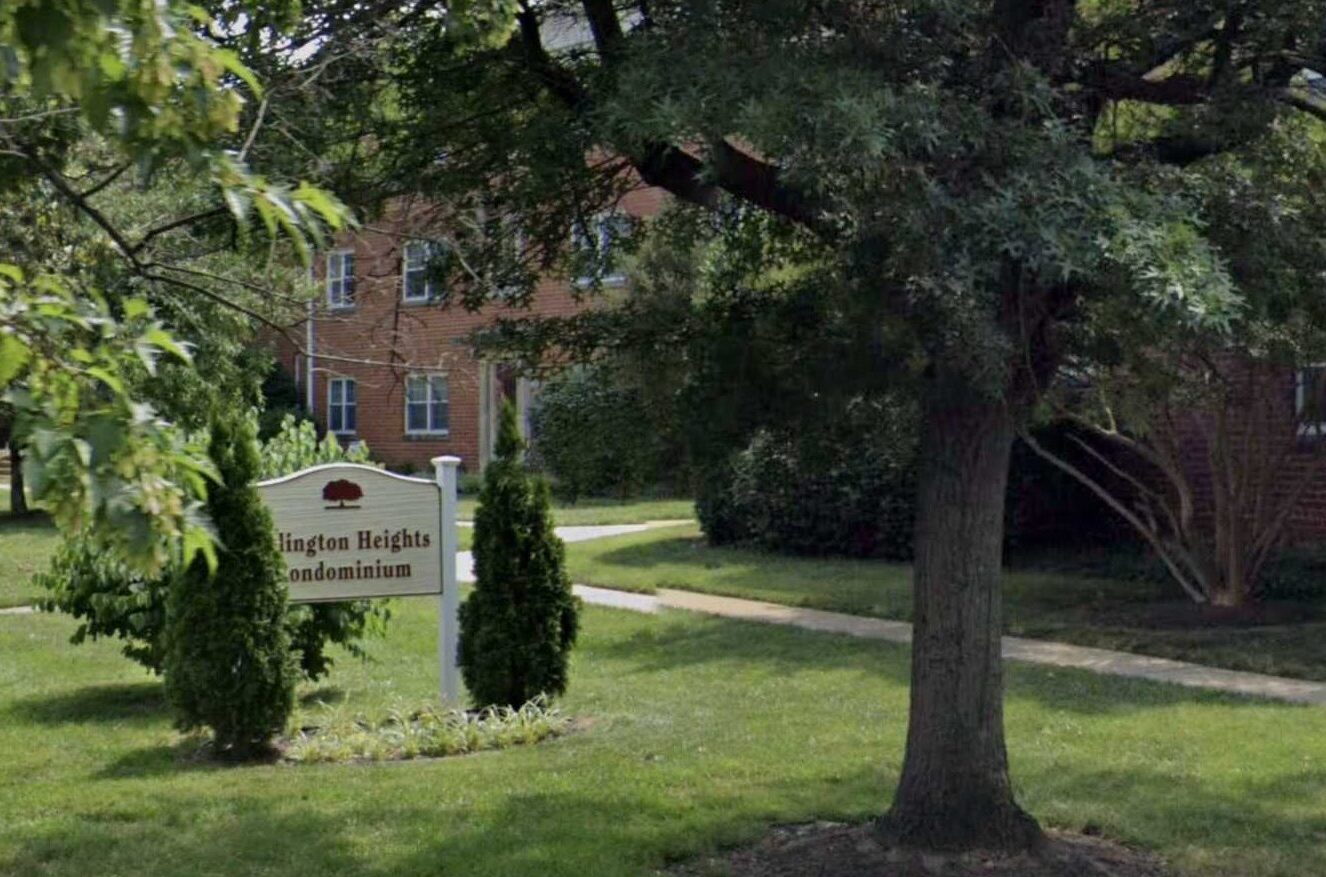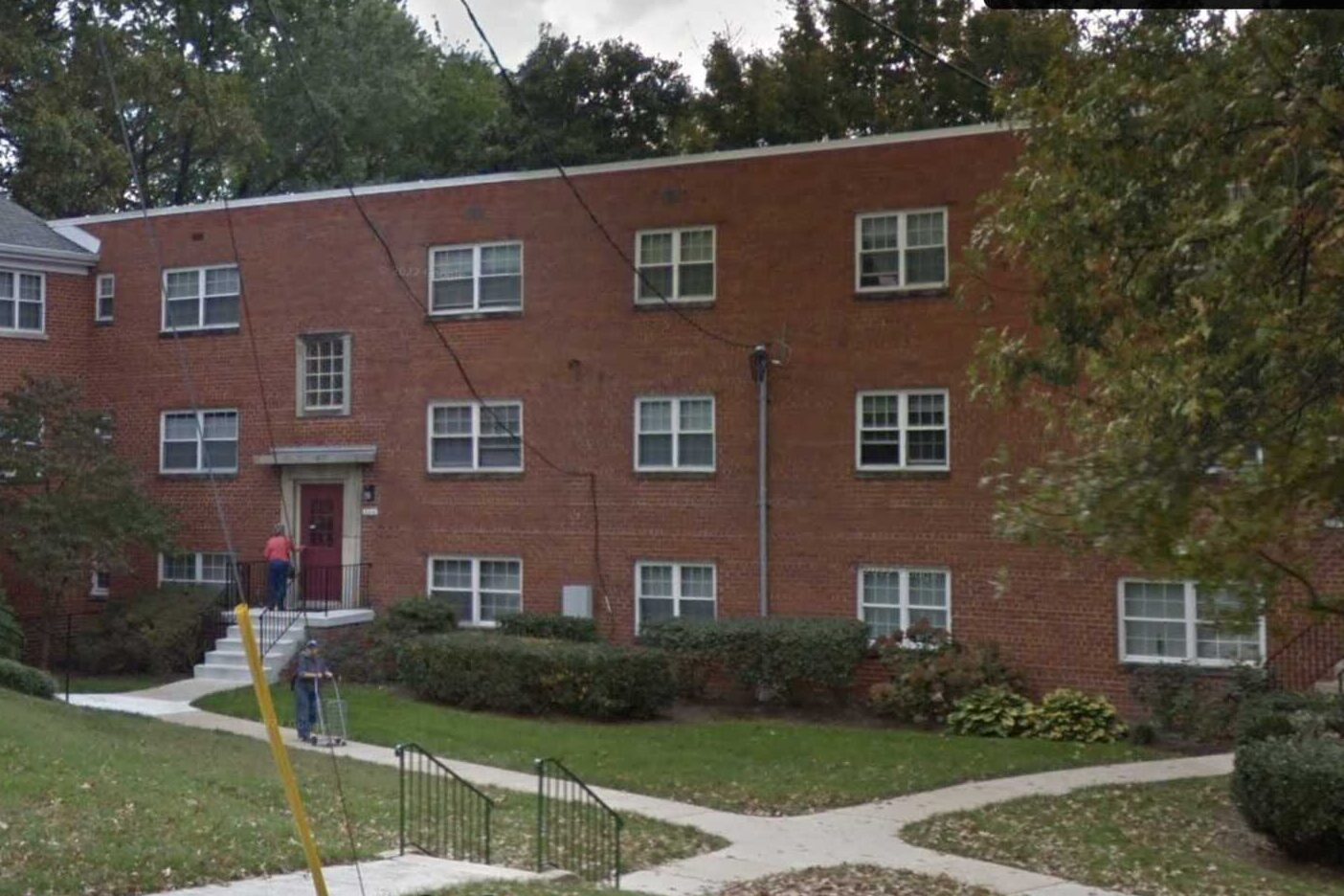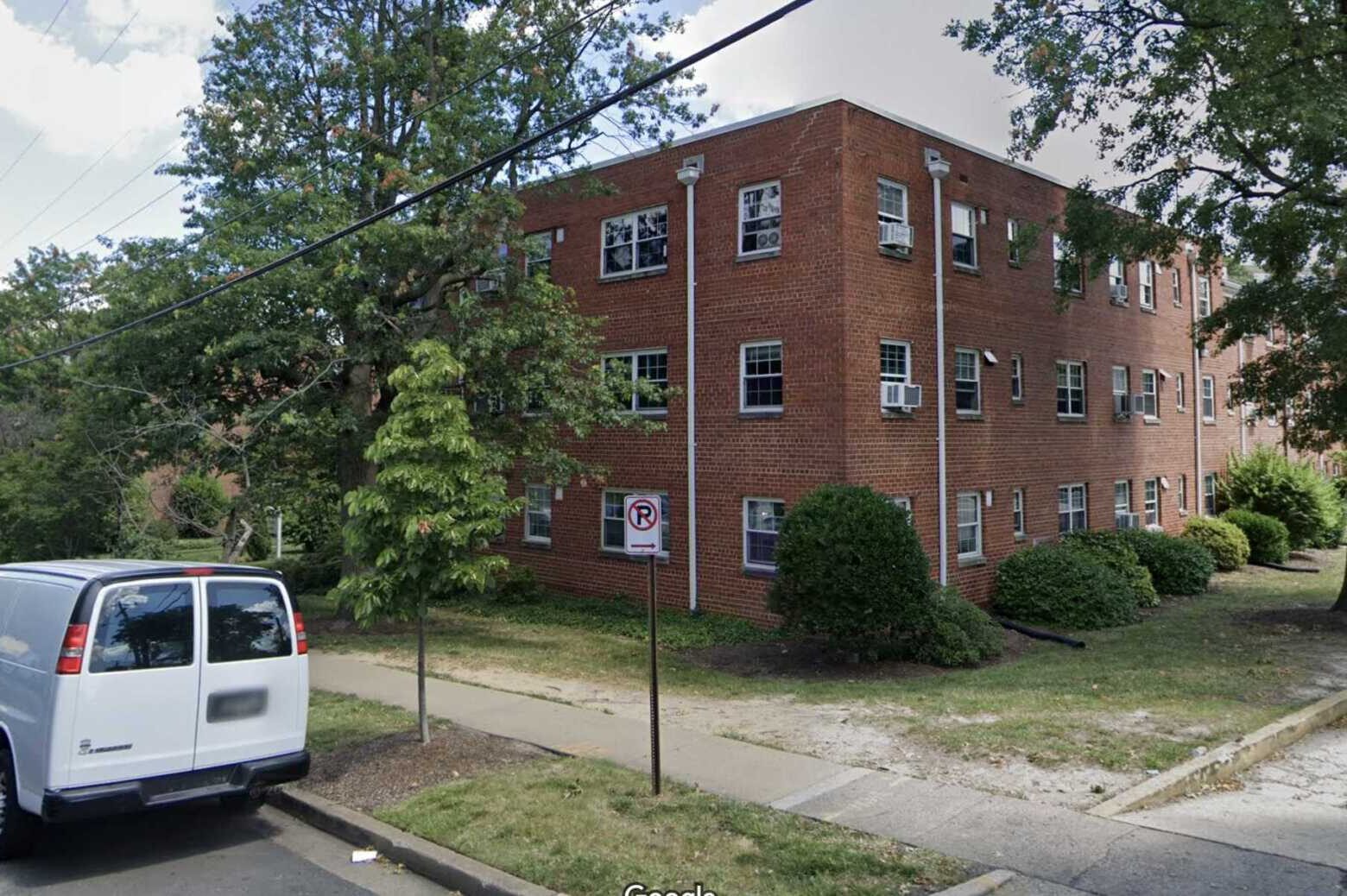(Updated at 12:40 p.m.) Residents of an aging condo complex near Columbia Pike are embarking on a novel project to upgrade their living situations while dodging staggering condo fees.
Members of the Arlington Heights Condominiums, located on 8th Road S. in the Arlington Mill neighborhood, plan to get the property redeveloped while ensuring every resident who wants to stay can.
First, a developer will build a new 6-story building on the property, into which all 111 existing condo residents can move. Then the existing units will be razed for new housing, which could include apartments for seniors.
“We’re really taking this thing into our own hands,” says Andrew Pitts, the president of the condo association. “If we figure this out and we’re successful, other condos in Arlington that are struggling with these same issues will have a roadmap.”
Arlington Heights is a garden-style complex in South Arlington built during the post-World War II housing boom. It has a diverse population, including about a quarter who are immigrants and some who do not speak English proficiently.
It has seen better days, however. Resident Kenneth Trotter says circuit breakers frequently blow and buildings need upgrades to roofing, windows, plumbing, and electrical systems.
“Implementing these upgrades would incur substantial expenses and lead to high assessments for the member,” he said.
A soup-to-nuts rehabilitation could cost $15 million, or roughly $150,000 per resident in condo fees, Pitts said. This would price out a number of owners, himself included, over the next decade.
Those who sell would likely neither profit from the sale nor pocket enough to buy elsewhere in Arlington. Homes in the complex already have higher condo fees and sell for less than other nearby, newer units, according to a financial analysis prepared for residents.
So the association hired a developer, architect, contractor and land-use attorneys, and partnered with a bank, to wade through muddy legal waters and find a solution.
One year later, the team came up with the phased plan to build a new complex, move residents in and redevelop the rest of the property. Pitts says condo owners could spend $78,000 on condo fees and end up with new homes, a shared clubhouse and other amenities, compared to $150,000 just for rehabbed units.
Realtor Eli Tucker, who analyzed the proposal for residents — and whose firm, Eli Residential Group, advertises with ARLnow — says he is impressed by the “win-win-win structure” of the deal.
“The existing homeowners are delivered a tremendous housing upgrade and increase in property value without being displaced from their community,” he said. “The development team has the land and flexibility to deliver a community of properties that fits the demands of a wide range of owners and renters.”
Trotter says he is excited for in-unit laundry and dishwashers, new plumbing and electrical systems and garage parking.
“The community at large and I are incredibly excited for the upcoming change,” he said. “So, for me, voting in favor of this project was an obvious decision. It’s a golden opportunity to improve our quality of life with a brand-new, state-of-the-art building, along with the added benefit of significantly enhancing our home equity.”
Tucker says Arlington Mill benefits, too.
The community gets a “much-needed housing and a much more efficient use of space in an area that supports more affordable ownership and rental housing costs than most other new residential multi-family properties that have been delivered over the past decade,” he said.
Despite all the groundwork, the project is far from breaking ground, as the developer still has to propose and file his plans with Arlington County. Pitts projects residents will be moving into their new units in five years.
While they have to wait five years, most members support the change, Pitts says. After hearing presentations, sometimes through a translator, and having time to seek independent legal perspectives on the deal, 98 of the 111 owners, or 88%, voted to move forward.
State code requires 80% support for such initiatives, Pitts said — something that can present a coordination challenge for other aging complexes that don’t have as much resident buy-in for needed but pricey renovations.
“Nobody thought we would get there at all,” he said. “It’s impossible to get that many people to agree on anything at all.”




